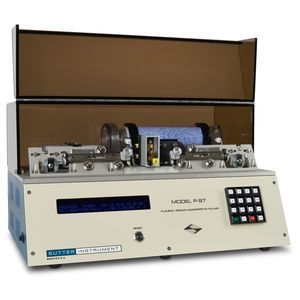
- Laboratory
- Sample management
- Sutter Instrument
Micropipette puller P-2000
Add to favorites
Compare this product
Description
The P-2000 micropipette puller represents a significant advance in the technology of fabrication of micropipettes, optical fiber probes, and nanospray tips. The P-2000 integrates a CO2 laser-based heat source with the technology derived from our extensive experience with conventional pullers. This system offers capabilities unmatched by other pullers.
While the P-2000 is suitable for working with most conventional glasses, its primary advantage is the ability to work with quartz glass (fused silica). Quartz offers superior material properties for a variety of research applications. Quartz is stronger than other glasses and can facilitate penetration through tough tissues which would normally break conventional pipettes1 . For applications requiring a low noise glass, users will find that quartz is the lowest noise glass available2,4. Quartz contains none of the metals used in conventional glasses3. Optically, quartz is virtually free from fluorescence when illuminated.
A CO2 laser was selected as the heat source for the P-2000 for several reasons: 1) the nominal emission wavelength of the laser approximates the resonant frequency of the SiO2 lattice in glass. Thus, quartz and other conventional glasses can be melted when the appropriate laser power is supplied; 2) laser heat is clean and leaves no metal residue on the pipette as do conventional heating filaments; 3) laser heat can be turned off instantly, leaving no residual filament heat; 4) the user can program the amount and distribution of heat supplied to the glass; 5) laser heat source means there are no filaments to burn out or replace.
Catalogs
No catalogs are available for this product.
See all of Sutter Instrument‘s catalogsRelated Searches
*Prices are pre-tax. They exclude delivery charges and customs duties and do not include additional charges for installation or activation options. Prices are indicative only and may vary by country, with changes to the cost of raw materials and exchange rates.




